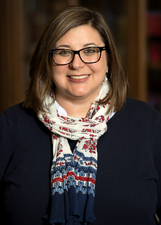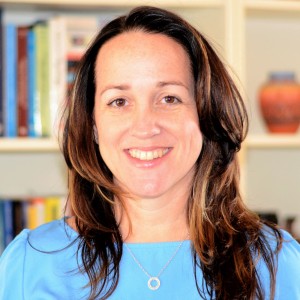ABOUT THE SESSION
The mentoring session will be held for graduate students and junior faculty will be held via zoom session during “lunch” on April 23. Prominent health communication scholars will be available to discuss research and career advancement with junior scholars one-on-one or in small groups. Topics of discussion may include but are not limited to: How to start a research program? How to collaborate with others? How to take advantage of available resources, such as public data, to advance one’s research agenda? What kind of skills are in high demand in the current job market? How to transition from graduate school to employment either in academia or elsewhere? How to balance life and work in a new job? Etc.
HOW WILL IT WORK:
At the session time you will be able to click the link in the interactive program to join the zoom session. You will be taken to a main room where a conference assistant will be able to answer any questions you may have. You will have the ability to go join whichever mentor room you chose by clicking on the breakout room options. You will see the mentors listed by last name. You will be able to leave the breakout room you are in and go into another at any time during the session.
CLICK HERE TO ACCESS THE INTERACTIVE PROGRAM
Session MENTORS
*All mentor names are hyperlinked to take you to their affiliation site
DAVID B. BULLER

Dr. David Buller is a Senior Scientist and Director of Research at Klein Buendel, Inc., a health communication research company in Golden, Colorado. He received his PhD in Communication from Michigan State University. Formerly, Dr. Buller was a Professor of Communication and Director of the Behavioral Sciences Section in the Arizona Cancer Center at the University of Arizona (1986-1997), a Senior Scientist at AMC Cancer Research Center (1997-2002); and the Harold Simmons Chair for Health Communication at the Cooper Institute (2002-2005). For over 25 years, Dr. Buller has tested health communication strategies in disease prevention, most notably for skin cancer prevention. Dr. Buller evaluated interventions for improving occupational and recreational sun protection, promoting policy change in schools and workplaces, and using purpose-built shade, smart phones, and social media to improve sun protection and reduce indoor tanning. In this work, he coauthored the Sunny Days, Healthy Ways primary and secondary school curriculum, the Sun Safe School school policy intervention, the sunZapp mobile app, and the Go Sun Smart and Sun Safe Workplaces occupational policy and education programs. He has also studied technology-based interventions for community tobacco control, smoking cessation, nutrition education, human papillomavirus vaccine uptake, and responsible sales practice interventions for the alcohol and recreational marijuana marketplaces. In the area of dissemination and implementation of evidence-based programs, Dr. Buller has studied the scale-up of occupational sun protection interventions nationwide in the snowsports and transportation industries and has brought to market the Way To Serve® responsible beverage service training. Dr. Buller’s health communication research has been funded by the National Cancer Institute, National Institute on Alcohol Abuse and Alcoholism, National Institute of Allergy and Infectious Diseases, Eunice Kennedy Shriver National Institute of Child Health and Human Development, National Institute on Drug Abuse, National Institute on Minority Health and Health Disparities, Centers for Disease Control and Prevention, Environmental Protection Agency, and Arizona and Colorado state governments. He is a past chair of the National Institutes of Health’s (NIH) Community Influences on Health Behavior Study Section and has served as a permanent member of four NIH study sections. Dr. Buller’s health communication work has been recognized by awards from the American Public Health Association, Kentucky Conference on Health Communication, and Colorado Cancer Coalition. He is a fellow of the Society of Behavioral Medicine. He has published over 195 books, chapters, and articles on his research.
ELISIA COHEN

Elisia L. Cohen earned her Ph.D. in Communication from the University of Southern California Annenberg School for Communication and Journalism. Prior to joining the University of Minnesota as Director and tenured Professor in the Hubbard School of Journalism and Mass Communication she served as the Gifford Blyton Endowed Professor and chaired the University of Kentucky Department of Communication and led its Health Communication Research Collaborative. Dr. Cohen began her career at Saint Louis University, rising through the ranks at the University of Kentucky as she developed innovative media and community-based outreach strategies to improve cancer prevention and detection behaviors in underserved communities. In 2016, she was recognized with the American Public Health Association’s Mayhew Derryberry Award. Her research has been continuously supported by the Centers for Disease Control and Prevention, National Institutes of Health, and private industry for the past 15 years. Her most recent research has been funded through the CDC’s Prevention Research Center’s initiative, where she has been the a lead communication scientist building intervention designs for both Kentucky and Minnesota on their Prevention Research Center applications. Most recently, she joined the UMN PRC team and Minnesota’s 2019-2024 PRC was the highest scoring center in the intervention research category of CDC’s funding centers. The project applies lessons Dr. Cohen gained in Kentucky to intervene in rural clinics to improve adolescent health visit practice. Her research on communication strategies to improve public understanding of disease has appeared in journals such as: Health Communication, Health Education and Behavior, Journal of Applied Communication Research, Journal of Broadcasting and Electronic Media, Journal of Communication, Journal of Communication in Healthcare, Journal of Health Communication, Qualitative Health Research, and Prometheus.
CARLA L FISHER

Carla L. Fisher, Ph.D. is Associate Professor at the University of Florida, Full Member of the UF Health Cancer Center, and Affiliate Faculty with UF Center for Arts in Medicine. Her research focuses on the centrality of family communication to cancer risk and coping. Her funded research program on mother-daughter breast cancer communication has been recognized with multiple national awards. Fisher’s research collaborations have garnered more than $1.5 million in grant funding including federal awards from the National Cancer Institute (NCI), National Institute of Environmental Health Sciences (NIEHS), National Institute on Aging (NIA), and the Department of Defense (DOD). She was an NIA Pre-doctoral Fellow/Trainee and received NIH post-doc summer intensive training. She currently is a multi-PI on an NIEHS R21, co-I on a DOD CDMRP grant, and a co-I or PI on several other privately or locally funded research studies.
JANICE KRIEGER

I am a Professor of Advertising and Health Outcomes & Biomedical Informatics, director of the Communication and Dissemination Program and co-director of the Recruitment Center at the UF Clinical and Translational Sciences Institute, and co-leader of the UF Health Cancer Center’s Cancer Population Sciences Research Program. I am trained as a communication scientist, with expertise in designing, implementing, and evaluating interventions to reduce cancer health disparities. My research focuses primarily on improving clinical communication about cancer clinical trials as well as cancer prevention, with a strong focus on engaging rural populations and racial/ethnic minorities. I have extensive experience in the area of communication about cancer clinical trials decision-making and am PI of a large, randomized clinical trial to reduce cancer screening disparities (1R01CA207689-01) that utilizes the patient portal to deliver messages that encourage cancer screening to patients. I have published over 80 peer-reviewed articles utilizing both qualitative and quantitative data in a variety of well-regarded and high impact journals, including the Journal of the National Cancer Institute.
KEVIN WRIGHT

Dr. Wright received his Ph.D. from the University of Oklahoma. He has focused much of his research on social support processes and health outcomes in both face-to-face and computer-mediated contexts. He is the author of five books, including Health Communication in the 21st Century and Computer-Mediated Communication in Personal Relationships. He has published over 85 articles and book chapters, and his research appears in numerous journals such as Communication Monographs, Journal of Computer-Mediated Communication, Journal of Communication, Health Communication, Journal of Health Communication, Journal of Applied Communication Research, Journal of Personal and Social Relationships, Communication Quarterly, Communication Studies, and several other publications. Dr. Wright served from 2007 to 2010 as editor of the Journal of Computer-Mediated Communication published by the International Communication Association. He also serves on numerous editorial boards of various communication journals and is a frequent presenter at regional, national, and international communication conferences.
Xiaoquan Zhao

Xiaoquan Zhao received his Ph.D. (2005) from the Annenberg School for Communication, the University of Pennsylvania. His research focuses on health message design and effects, evaluation of public communication campaigns, health information seeking, information disparities affecting vulnerable populations, news effects on health and risk perceptions, and the role of the self in health behavior and persuasive communication.
